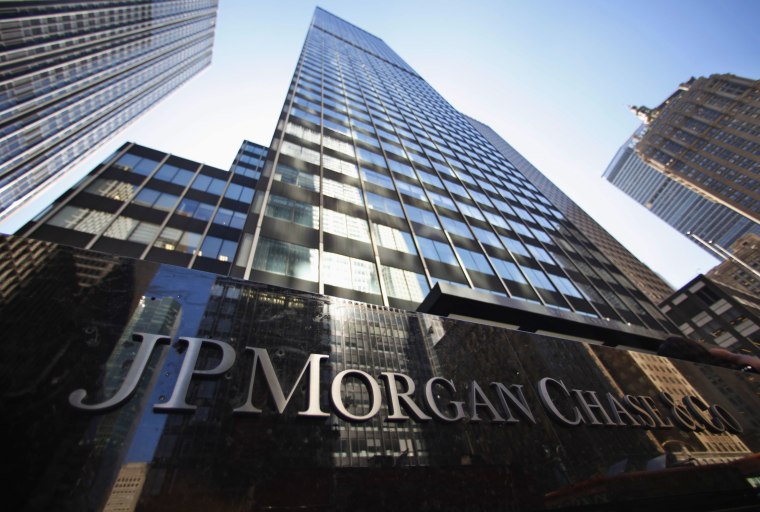JPMorgan Chase's first quarterly loss in nine years had Chief Executive Jamie Dimon looking a bit more vulnerable Friday after the bank took a $7.2 billion hit from penalties, expected future litigation and other legal matters.
The company reported a loss of $380 million, or 17 cents per share, for the third quarter — its first loss since 2004. Friday's report brought other firsts:
- The loss came as the bank added $9.3 billion, pre-tax to its legal reserves — the first time that number stood higher than the cost to compensate its 260,000 employees.
- The first time it disclosed the size of its war chest to pay for legal issues ($23 billion).
- And the first time a financial institution has faced a government fine in the ballpark of $11 billion, the range JPMorgan has been discussing with the US government to settle mortgage-related issues.
The very first question at the top of the bank's quarterly call with reporters to discuss results questioned whether there would be any "management changes" as a result of the record, forthcoming fine. Dimon said, curtly: "No."
Some arguments have been made to the contrary.
Slate's Alex Pareene has argued that in no other industry would a company look beyond loopholes in compliance to focus on profits: "If you managed a restaurant, and it got the biggest health department fine in the history of restaurants, no one would say, 'Yeah, but the restaurant's making a lot of money. There's only a little bit of poison in the food,'" Pareene said in an interview on CNBC.
(Read more: Legal headaches take toll on JPMorgan's bottom line)
Felix Salmon at Reuters notes that a $450 million fine over interest-rate rigging — "measly" compared to the price tag on JPMorgan's settlement — was itself enough to lead UK regulators to ask Barclays CEO Bob Diamond to resign in 2012.

The thought isn't foreign to regulators here in the U.S., but it's ultimately a decision left up to a company's board of directors.
Speaking to that, one of the bank's regulators said, "There is some overlap in concern, but the decision-making outcome is often different." The official asked to remain anonymous so as not to hurt the working relationship with the bank, but in other words: The board's got his back.
JPMorgan's directors have been vocal in their defense of Dimon, whose role as chairman was at risk earlier this year as shareholders proposed to split the chairman and chief executive roles. Dimon won support for both roles by a healthy margin.
(Read more: Paulson on JPM: I shouldn't say, but I will ...)
Dimon said any further change in position would be a question for the board, which has made its position on the bank's corporate governance well-known.
One week ago, Dimon stepped down from his role as chairman of the bank's, well, bank. The move, Dimon said, was "consistent" with the structure that regulators like a bank's subsidiaries to have. For regulators, the more checks and balances within a company, the better.
The board also appears to have scored a front-seat role in negotiating the whopper settlement with a handful of government agencies.
In the earnings news release, Dimon said: "The Board continues to seek a fair and reasonable settlement with the government on mortgage-related issues — and one that recognizes the extraordinary circumstances of the Bear Stearns and Washington Mutual transactions, which were undertaken at the request or encouragement of the U.S. Government."
(Read more: Dimon visits White House amid settlement talks)
In its earnings presentation, JPMorgan attributed that some 80 percent of its associated mortgage-backed securities losses are traced back to Bear Stearns and Washington Mutual — both companies that JPMorgan stepped in to acquire in the 2008 financial crisis.
When the bank negotiated the Bear deal, at least, it asked the SEC to take into account that JPMorgan was making the acquisition to spare jobs and stem losses.
"We weren't completely stupid," Dimon said to analysts.
-Reuters contributed to this report.